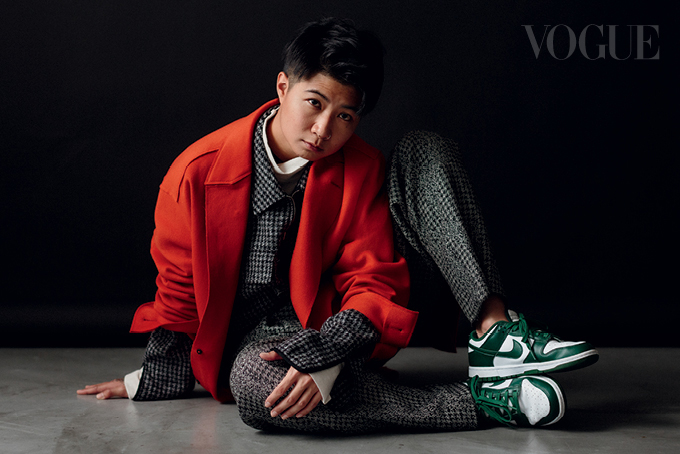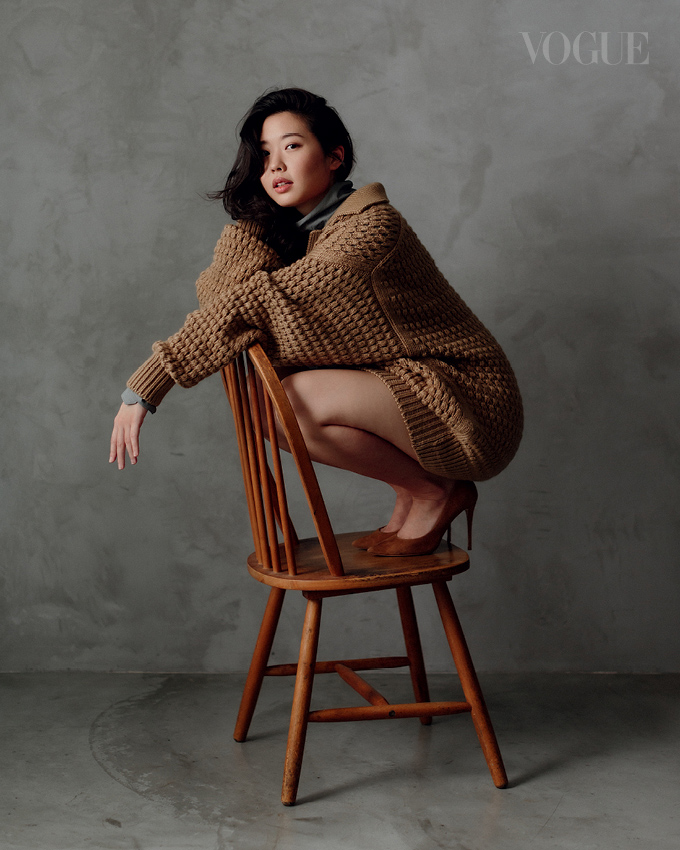Anita Kapoor
Anita Kapoor is a creative multi-hyphenate who facilitates conversations and gives talks for companies and brands that want to address inclusivity, diversity and equity as well as emotional and mental wellness.
What is modern masculinity? This is a huge question at a time when [the concept of] gender is evolving. But we are still in the process of questioning, breaking down belief systems, addressing emotional wounds, ancestral patterns and re-establishing what masculine (and feminine) really is. As masculine identity has been allowed to arrive at an unnatural position of power, authority and control, we need to maybe reframe this question.
Let’s ask, what is healed masculinity? It is where the action of a man’s self-inquiry is uncloaked of shame and pride and where acceptance of what needs attention within (patterns, ideologies, behaviours, traumas) is compassionately allowed.
For this to happen it takes an acceptance (by men, between men and towards men) that emotional pain happens to them too, and with it a willingness to embark on the experience and to recognise the impact of anger, fear, shame within, and towards others. Healing these discoveries brings with it the joy of self-understanding, the reality of emotional responsibility and self-regulation, healthy boundaries and respectful actions.
When men treat themselves with dignity and respect, a reconnection to compassion and empathy follows, a peacefulness and safety settles, that when experienced within and shared offered outwards, is love.

Sam Lo
Sam Lo is a Singaporean trans-masculine, non-binary artist. They have made a name for themselves in the local creative scene over the past decade, with work that includes murals, sculptures and illustrations. They live with their partner of 10 years and a puppy.
It’s hard for me to define what masculinity is. Especially because I identify as non-binary, I don’t see traits as distinctly feminine or masculine. My father was one of the earliest and most prominent male figures in my life. So watching him and what he did—how he provided for the family, his independence, his foresight—I initially associated many of these characteristics with masculinity. But today I realise that I see these same things in so many women, like single mothers, for example.
I’ve thought of myself as a boy ever since I was young. My toys were gender-neutral and I always played with boys. I had crushes on girls, but I never befriended them. Then came the identity crisis. Because I aligned so closely with masculinity, I started to feel a strong sense of rejection towards feminine things. I never wanted to wear dresses or put on make-up. Toxic masculinity reared its head too. I was surrounded by boys who still saw me as female, and when they realised I was trans-masculine, they would act as though they had something to prove. In turn, that made me feel like I had something to prove. It’s behaviour I’m not proud of.
Gender is ultimately a social construct, right? Your gender expression is what you want to present to the world. My own gender expression is trans-masculine, so I’ve always felt more comfortable wearing pants and dressing like a male. I’m on hormones now and I’ve had top-surgery done. But even before all of that, I’ve always viewed my body as being man-like. That’s where my personal relationship with masculinity started and it’s a journey I’m still on today.
As I grow into myself more, I realise that stereotypically masculine or feminine traits aren’t inherently tied to any particular gender. I don’t think any of us should have to subscribe to a specific set of rules on what our gender means. You can just be you, whether that is masculine, feminine, or more likely some mix of both.

Rebecca Eu
Rebecca Eu is a Singaporean social entrepreneur working throughout Southeast Asia. Her most prominent venture is her social enterprise Mei’s Own, through which she employs survivors of sex trafficking in the Philippines to create homeware pieces that provide her beneficiaries with a sustainable livelihood. Eu has been back in Singapore for the last year and a half, and is now working with The Helping Hand, a rehabilitation home for former drug addicts.
When we talk about redefining masculinity, it’s about acknowledging that men have issues that they need to talk about and can’t deal with alone. For example, there’s a lot of pressure for the masculine figure in Singaporean families to be the sole breadwinner. This person is expected to be career-oriented and to be uninvolved in raising children.
But I don’t think anyone agrees with that anymore. Women in Singapore have definitely stepped up. We are very career-driven, very determined. Now, there’s the pressure to compare, especially within couples. A man may feel intimidated if I make more money than him or if my family background is better. There’s a fear of being outshone. But I’ve always believed that wealth between a couple should be shared. I also believe that it should be more normalised for men to express their paternal desires and be more active in their families.
I grew up with three older brothers, so I can draw examples of positive masculinity from my upbringing. My parents make it a point to have individual meals with all their offspring. We have a close, open and trusting relationship. I talk to my dad about the dates that I’ve been on—I share the good, the bad and the ugly. My brothers and I seek counsel from each other; we have that open door policy with each other.
We can no longer focus on traditional ideas of masculinity. How do we transition to a healthier place where men and women can come together and learn from each other? More importantly, how can we create an environment where men feel comfortable enough to start conversations about problems they may be facing?
Statistically, we can see that men are more susceptible to suicide in most societies. Most of the ex-drug offenders and persons deprived of liberties I work with through The Helping Hand are male. There are clearly conversations to be had here and safe spaces to be built. So, I’d like for modern masculinity to include considerations of mental health and emotional wellness.
There is strength in vulnerability and softness, and masculinity can be strong and soft at the same time.

Alan Cheung
lan Cheung is a British-born orthopaedic surgeon and director of the International Orthopaedic Clinic at Mount Elizabeth Novena Hospital. He specialises in robotic knee and hip replacement and treatment of sports injuries. Cheung moved to Singapore seven years ago for family reasons and to experience living in Asia, and is a father to three children: Fiona, 14, Angus, 12, and Marcus, 8.
Men need to be cognisant of the fact that our society has changed. I grew up in a family with strong female role models and have always known that women are often mentally stronger and more capable than men. I’m never surprised when I see female heads of different industries. However, some men might find this difficult to accept.
My wife is a family physician and co-founder of Osler Health International. Many families have two breadwinners and it’s reasonable to expect that you share the duties as is practically possible. Fathers are now allowed to enjoy more time with their kids and it’s more common to do so than 20 or 30 years ago—we also have paternity leave now. My dad, for example, was a traditional Chinese man. While I’d never say he should have done more or less of anything, he missed out on a lot of experiences and conversations he could have had with us as children. One of my greatest joys is watching my kids develop—bonding with them means taking them to Brazilian jiu-jitsu, playing tennis, or just the simple act of watching movies.
One of the greatest misconceptions about men is that we have a lot of emotions, but a lot of the time feel that we can’t express them or are unsure about how to handle them. If taught from an early age, and given encouragement, men should be able to express constructive emotions that do not fit the hegemonic masculine norm.
Positive modern masculinity is taking the traditional roles of being a man, such as providing, protecting and leading, and combining these with empathy, conscience and awareness of the changes in society happening at the moment. At the end of the day, it’s more about being a good person than a good man. To me, this means having compassion and respect for others, emotional intelligence and empathy, and tolerating others’ beliefs and opinions.
Photographer: Sayher Heffernan
Fashion Director: Desmond Lim
Make up and Hair (Anita Kapoor): Dewi Mahoney
Make up and Hair (Sam Lo, Rebecca Eu and Alan Cheung): Grego and Zhou Aiyi | Makeup Entourage
Styling assistant: Joey Tan





